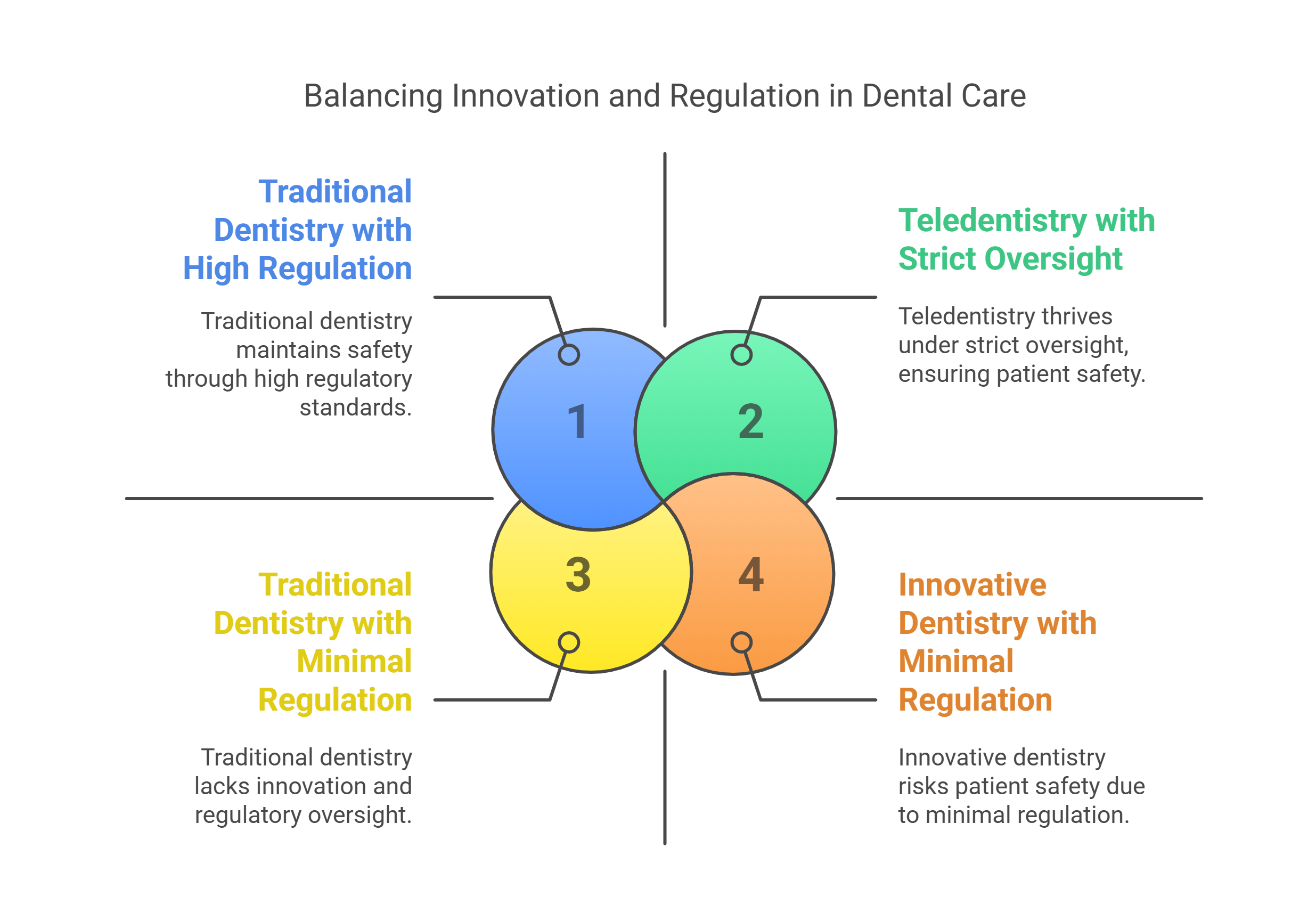
Big Changes in North Carolina’s Dental Profession: What’s Ahead?
The dental profession in North Carolina is on the brink of significant transformation as increased regulatory scrutiny and evolving business models prompt a reassessment of how dental services are delivered. These anticipated changes could reshape not just patient care but also the landscape of dental practice ownership.
Understanding the Current Oversight Landscape
Currently, North Carolina’s dental practices operate under a rigid regulatory framework that has traditionally prioritized direct oversight by licensed dentists. This has come under fire as the state grapples with access to care issues, particularly in rural and underserved communities. With the rise of innovative care models and alternative practice arrangements, there are calls to reform how dental practices are structured and supervised.
Challenging the Status Quo: An Urgent Call for Change
The push for change reflects a broader national trend where traditional dentist-led models are becoming less effective in meeting patient needs. Many stakeholders argue that allowing non-dentist ownership could enhance access, especially in areas where dental professionals are scarce. This shift raises pivotal questions about the quality of care and the training that non-dentists would require.
Insights from Other States: A Successful Reform Model?
States like California and Washington have pioneered similar reforms, allowing for greater flexibility in practice ownership. These changes have been met with both praise and concern, illustrating the complexities of balancing access, quality, and professional integrity. Lessons learned from these states can inform North Carolina’s next steps, showcasing both the successes and challenges associated with reform.
Future Predictions: What These Changes Could Mean for Patients
If North Carolina adopts a new model of oversight, patients may experience increased accessibility to dental services, including innovative solutions like teledentistry. However, there is a valid concern that such reforms might prioritize profit over patient welfare unless carefully regulated. This ongoing discourse emphasizes the need for robust checks and balances to ensure patient safety remains the top priority.

Counterarguments: Protecting Patient Care in Transition
While proponents of change advocate for new models, there are equally compelling arguments against such shifts. Critics argue that introducing non-dentist ownership could jeopardize the quality of care. Their concerns highlight the potential pitfalls of transitioning away from a deeply ingrained oversight culture, underscoring the need for thoughtful consideration of regulatory frameworks when evaluating alternative ownership structures.
The Role of Technology in Shaping the Future of Dental Care
Technological advancements, including AI-driven diagnostics and treatment personalization, are rapidly changing the landscape of healthcare, including dentistry. This technology can address many current inefficiencies and potentially enhance both patient care and operational effectiveness in dental practices. As these changes unfold, how North Carolina integrates technology into its new business model will be crucial to its success.
Community Impact: How Will Patients React?
For everyday patients, these reforms could either signal a promising shift toward more accessible care or a concerning change that risks the quality they’ve come to expect. As the state deliberates these critical decisions, ongoing communication with patients and stakeholders will be essential to garner trust and build a system that meets diverse community needs.
As the dental profession in North Carolina stands at this crossroads, the implications of its choices extend far beyond the profession itself, impacting community health, economic accessibility, and the overall landscape of patient care. Stakeholders must navigate these changes with care, ensuring that any new model encompasses the best interests of both patients and practitioners.
**Take action and stay informed about these changes in North Carolina’s dental profession. Understanding their implications is key to ensuring better healthcare for all.**
 Add Row
Add Row  Add
Add 




Write A Comment